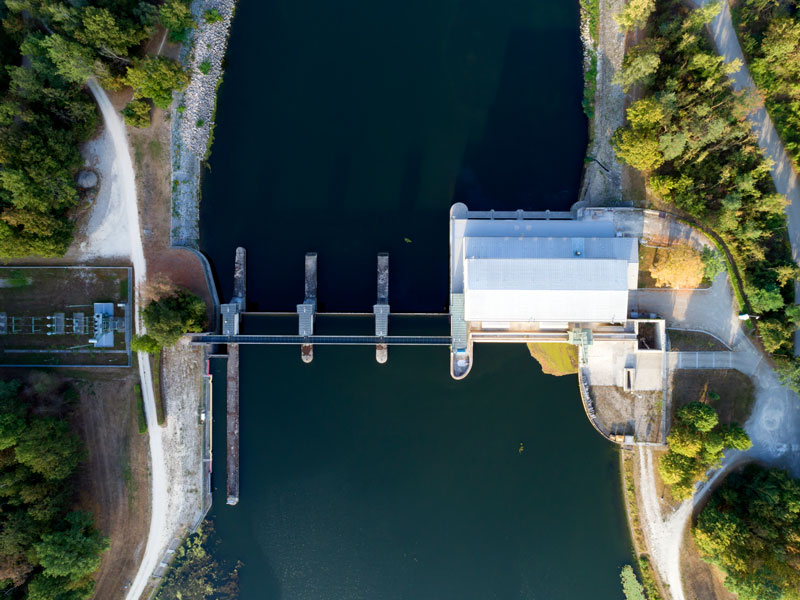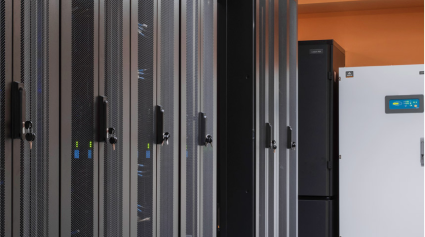Energy costs are usually one of those variable costs that businesses need to keep an eye on but aren’t usually considered of strategic importance. That, of course, has changed this year as oil and gas prices have soared in Europe, and other parts of the world, after Russia’s invasion of Ukraine.
How can channel partners in the data centre industry help their customers manage and optimise energy consumption? How can energy management software, renewable energy and “grid balancing” help companies become more sustainable and trim energy costs?
These were among the key topics discussed at the Canalys Forums EMEA event in Barcelona in October.
Panelists included executives from the tech industry, IT research, and Vertiv’s Andrea Ferro − Vice President, EMEA Technology Application and Market Development.
As panellists noted, the energy crisis has highlighted the energy challenges and opportunities facing the data centre industry.
“We are dealing with an energy crisis that is unseen in our experience,” said Craig Brunsden, Chief Executive Officer at Axiz, an IT Infrastructure and Software distributor based in Southern Africa. Companies are not only having to deal with rising energy costs but also a deteriorating energy grid, he added.
For the data centre industry, the energy crisis also presents opportunities, panellists said.
“This is a massive opportunity for all of us to start focusing in developing technologies that are much more efficient in monitoring the operational efficiency of the data centre,” said Ferro.
The Business Case for Energy Efficiency
Energy efficiency can improve a company’s financial performance and help it meet sustainability targets.
Companies can measure their total energy spend, followed by measuring energy use in their business by the type of activity, and then measuring energy use in their supply chain – “Scope 3” emissions, panellists said.
Improving energy efficiency in the data centre industry is also a good opportunity for resellers in the channel, said Asbjørn Navrestad, sales director at SEC Datacom, a Nordic IT distribution company.
“You can be a trusted adviser, decide how to measure, how to analyse and prioritise the project and go and implement,” he said. “It’s a massive opportunity if you dare and have the skill set.”
But is reducing energy costs a high priority for all executives and clients? Panellists agreed that it was probably more fruitful for channel IT partners to pitch energy-saving technologies and methods to chief financial officers or finance directors, rather than heads of IT, whose departmental energy costs are a relatively small proportion of their total costs.
Energy management software can help reduce energy bills and carbon emissions, panellists also said.
Improving energy efficiency and reducing emissions may also help companies with compliance and growth. In the past few years, governments and environmental regulators in Europe and elsewhere have placed restrictions and temporary bans on the building of new data centres.
According to a report by the International Energy Agency, data centres account for about 1% of global electricity demand.
The report notes that the industry was able to limit the impact of capacity growth on total energy consumption prior to 2020 by improving operating efficiency. However, in 2020, global internet traffic surged by more than 40%.
Mordor Intelligence forecasts a 13% compound annual growth rate in data centre construction over the next five years.
“There are capacity constraints in a lot of different data centre locations, even just to get the planning permission to go ahead for the construction of new data centres,” said Ferro.
Latest technologies including edge computing and edge infrastructure, artificial intelligence and internet-connected devices, known as the “Internet of Things” is also increasing demand for energy, he added.
Collective Buying Power
Power Purchase Agreements (PPAs) long-term contracts to buy renewable energy in agreed volumes and at fixed prices, can also help data centre clients get more control over energy costs, panellists said.
However, due to growing demand for PPAs, companies may struggle to get as good a deal as those that signed up for them before the energy crisis.
Global problems need global solutions, including better information and research on sustainability.
In October, Vertiv published a guide to data centre sustainability to help reduce carbon emissions and optimize use of resources such as energy and water.
The report includes guidance for data centre operators on the business case for reducing environmental impact, how data centre infrastructure and complementary technologies are evolving to support higher utilisation and increased use of renewable energy, and resources, frameworks and metrics for implementing and measuring sustainability initiatives.
Despite the economic and financial challenges facing the data centre industry and its channel partners, panellists remained cautiously optimistic about its future.
The channel will play a key role in creating a more sustainable, energy efficient data centre industry, panellists agreed.
That, combined with educating employees, customers and channel partners in the latest sustainability technologies will also help quicken progress.
As Ferro noted, it’s one of reasons why Vertiv is increasing investment in education and training, including its Customer Experience Centre for Thermal Management near Padova, Italy."We really need to invest in education, and we do a lot at our Academy to be able to look at the system level, at the optimization services in general,” he said. “There’s definitely a gap in education, we need to do much more in a joint effort to make sure we step up to the challenge."











